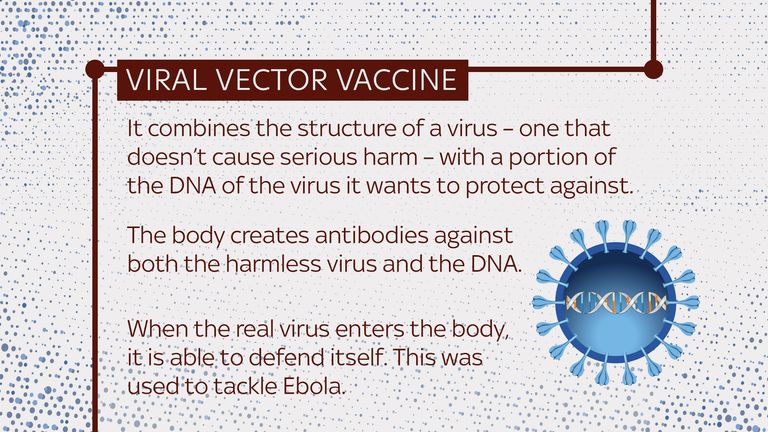The Oxford vaccine is up to 90% effective in preventing COVID-19, according to tests on thousands of volunteers.
The result compares with the Pfizer and Moderna vaccines, which were recently shown to be 95% and 94.5% effective respectively.
The vaccine, codenamed AZD1222, was developed at Oxford University with support from the pharmaceutical giant AstraZeneca.
The UK has pre-ordered 100 million doses, with four million expected to be rolled out by the end of the year if the vaccine is approved by the medicines’ regulator.
Professor Adam Finn, of Bristol University, helped run trials of the jab. He paid tribute to the “community spirit” of volunteers, many of them healthcare workers.
“Everyone has felt very frustrated during this pandemic,” he told Sky News.
“To be able to contribute in some way to finding a solution has been a very big part of the motivation for people taking part in the research.
“It’s to them that we should really doff our hats. They are the real heroes.”
The vaccine is based on an adenovirus, which causes the common cold in chimpanzees.
The virus is modified so it can’t cause disease in humans. It also carries an extra gene from the coronavirus.
Inside the human body the gene makes the spike protein that coats the shell of the coronavirus, stimulating an immune response that protects against infection.
Professor Finn said new biotech vaccines were proving faster to develop than more traditional jabs based on inactivated viruses.
“What is surprising is that they have also worked so well,” he said.
“The next challenge will be to get enough people immunised fast enough to make an impact on the virus.
“That does take time, to manufacture, distribute and get into people’s arms. It’s not going to happen overnight.”
:: Subscribe to the Daily podcast on Apple Podcasts, Google Podcasts, Spotify, Spreaker
Lois Clay Baker, a medical student, took part in trials at St George’s Hospital in south London.
She volunteered after seeing seriously ill COVID patients in intensive care.
“I think a lot of people are going to get a lot of benefit from it,” she said.
“There won’t be people in intensive care anymore, small things like people having relatives in hospital again and even smaller things like i can get the train again and see my parents again. I think it’s going to change everything.”




